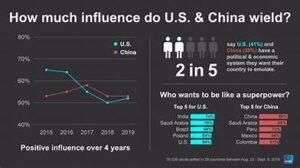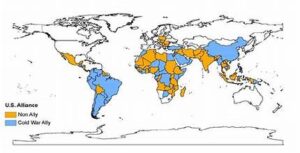
In the ever-evolving landscape of global politics, emerging and rumored political alliances often shape the contours of international relations. As we approach 2024, several intriguing alliances are being whispered in diplomatic circles, each carrying potential implications for global stability, economic policies, and security dynamics. This article delves into these rumored alliances and explores their potential impacts on the global stage.
1. The Rise of New Regional Partnerships
As global power dynamics shift, new regional partnerships are coming into focus. These alliances are being driven by a combination of economic interests, security concerns, and geopolitical strategies. For example, the rumored alliance between several Southeast Asian nations aims to counterbalance China’s growing influence in the region. This partnership is said to focus on enhancing trade, military cooperation, and shared security interests.
Similarly, there are whispers of a growing alliance among Eastern European countries, potentially united by their concerns over Russian aggression and energy dependence. These countries may seek to bolster their collective security and economic resilience through closer cooperation and joint initiatives.
2. The Impact of Economic Considerations
Economic motivations are a major driver behind emerging political alliances. As countries grapple with the fallout from the COVID-19 pandemic and economic uncertainties, strategic alliances are being formed to address common economic challenges. For instance, some European nations are exploring closer ties with countries in Africa to secure resources and create new trade routes. These alliances could reshape global trade patterns and introduce new economic players on the world stage.
Another key economic factor is the competition for technology and innovation leadership. The rumored alliance between certain tech-forward nations and emerging economies could pave the way for breakthroughs in technology and infrastructure development. This partnership may focus on collaborative research, development projects, and technological exchanges, which could have far-reaching implications for global innovation.
3. Security and Military Implications
Security concerns are also influencing the formation of new political alliances. The ongoing conflicts and security challenges in various regions are prompting countries to seek alliances that can provide mutual support and enhance their strategic positions. For example, there are rumors of a potential alliance between several countries in the Middle East, aimed at countering regional threats and promoting stability.
Furthermore, the shifting balance of power in the Indo-Pacific region is leading to new security arrangements. The rumored alliance involving key players in the Indo-Pacific could be focused on strengthening maritime security, countering potential threats, and ensuring a stable and secure regional environment.
4. The Role of International Organizations
International organizations are likely to play a crucial role in shaping the impact of these emerging alliances. As new alliances form, they may seek to leverage international organizations like the United Nations, World Trade Organization, and regional bodies to advance their interests and negotiate terms.
The influence of these alliances on international organizations could lead to shifts in global governance structures and the realignment of diplomatic priorities. The growing influence of emerging alliances could challenge the existing order and prompt a reevaluation of international norms and policies.
5. Potential Challenges and Opportunities
The formation of new political alliances is not without its challenges. Divergent national interests, historical conflicts, and varying levels of commitment could pose hurdles to the effectiveness of these alliances. Additionally, the geopolitical landscape is highly dynamic, and the emergence of new alliances could lead to unexpected shifts in global power structures.
However, these alliances also present opportunities for greater cooperation, stability, and progress on global issues. Collaborative efforts in addressing climate change, pandemics, and economic development could be bolstered by these new partnerships, potentially leading to positive outcomes for the global community.
Conclusion
As we move into 2024, the landscape of global politics is being reshaped by emerging and rumored political alliances. These alliances, driven by a combination of economic, security, and geopolitical factors, have the potential to influence global stability, economic trends, and security dynamics. While challenges exist, the opportunities for greater cooperation and progress also abound. As these alliances continue to develop, their impact on the global stage will become increasingly apparent, shaping the trajectory of international relations in the years to come.


